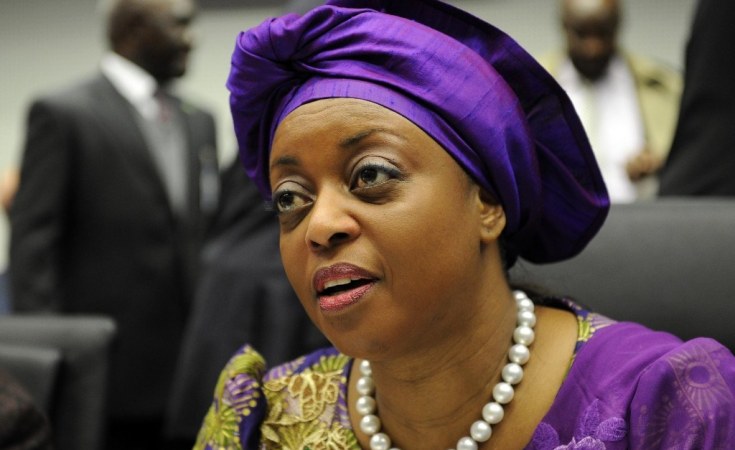Diezani, who was Nigeria's petroleum minister between 2010 and 2015, appeared in a London court on Monday over bribery offences, following a National Crime Agency investigation.
A former Nigerian Minister of Petroleum Resources, Diezani Alison-Madueke, appeared in court in London on Monday in a case of bribery charges filed against her by the United Kingdom (UK) government.
Mrs Alison-Madueke, who was Nigeria's petroleum minister between 2010 and 2015, was charged with the bribery offences in August, following a National Crime Agency investigation.
She allegedly received bribes as Nigeria's petroleum minister in the form of cash, luxury goods, flights on private jets and the use of high-end properties in Britain in return for awarding oil contracts, Reuters reports.
According to Reuters, the former minister, on Monday, appeared at Westminster Magistrates Court, where she spoke only to give her name, date of birth and address.
The charges against her were read out in court, but she was not asked formally to enter a plea. Her lawyer, Mark Bowen, told the court she would be pleading not guilty, the news agency also reports.
Mrs Alison-Madueke, aged 63, who also served as president of the Organization of the Petroleum Exporting Countries (OPEC), was a key figure in the Nigerian government between 2010 and 2015.
The former minister, who has subsisting criminal summons issued against her by a Nigeria's federal court in Abuja, was arrested in London in 2015, shortly after stepping down as minister.
She was charged in August with six bribery offences.
She has spent the past eight years on police bail, living in St John's Wood, an expensive area of London.
Charges
The UK prosecutor, Andy Young, said she was alleged to have accepted a wide range of advantages in cash and in kind from people who wanted to receive or continue to receive the award of oil contracts which he said were worth billions of dollars in total.
She allegedly accepted bribes during her time as Minister for Petroleum Resources, in exchange for awarding multi-million pound oil and gas contracts.
She is alleged to have benefitted from at least £100,000 in cash, chauffeur driven cars, flights on private jets, luxury holidays for her family, and the use of multiple London properties.
Her charges also detail financial rewards including furniture, renovation work and staff for the properties, payment of private school fees, and gifts from high-end designer shops such as Cartier jewellery and Louis Vuitton goods.
Nigerian dimension
The administration of the immediate-past Nigerian president Muhammadu Buhari came to power in 2015 accusing the past administration of President Goodluck Jonathan government, in which Ms Alison-Madueke served, of monumental corruption.
Activities of Ms Alison-Madueke's Ministry of Petroleum Resources and the Nigerian National Petroleum Corporation (NNPC) which she served as its chair, were often cited by the Buhari government as part of the worst forms of corruption that took place during the Jonathan administration.
The former minister quickly became a subject of intense investigations and legal proceedings in Nigeria as soon as the new government settled down.
A court document revealed that the current chair of EFCC, Abdulrasheed Bawa, who was appointed to head the team investigating Ms Alison-Madueke and her allies, once travelled to the United Kingdom to interrogate the former minister but could not gain access to her.
EFCC's investigations culminated in the money laundering charges filed against her in 2018. The commission also targeted high-worth assets it believed she acquired with proceeds of crimes for forfeiture.
Activities of some officials of the agencies linked to her ministry were also subject of corruption charges.
Some electoral officers have also been jailed for funds they allegedly received from NNPC on her watch to manipulate the results of the 2015 elections.
On different occasions, the Federal High Court in Abuja has issued a warrant of arrest against her as part of the process of bringing her to Nigeria to face charges.
The EFCC blamed the United Kingdom government for shielding her from trial.


